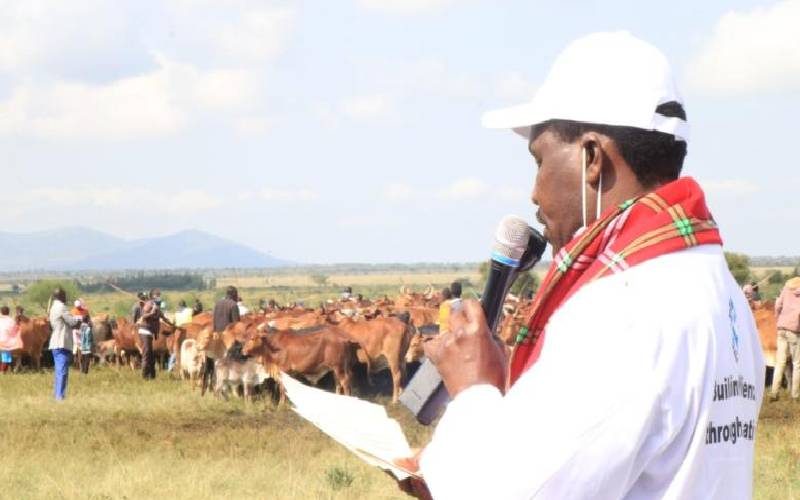×
The Standard e-Paper
Kenya’s Boldest Voice

Agriculture CS Peter Munya at Oloosuyian area of Ildamat in Kajiado county where he launched a free vaccination for livestock animals yesterday. [Peterson Githaiga, Standard]
More than 100,000 head of cattle will be vaccinated against Foot and Mouth disease in fresh efforts to cushion the local livestock market from cross-border diseases.